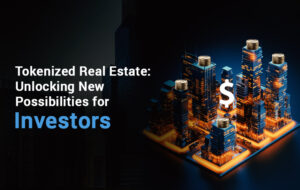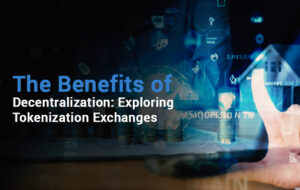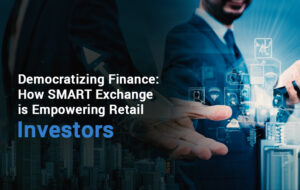The real estate industry has long been characterized by its traditional financing methods, which often present significant barriers to entry for developers and investors alike. However, the advent of blockchain technology and tokenization is ushering in a new era of innovation, disrupting the status quo and opening doors to previously untapped opportunities. As we delve into the intersection of tokenization and real estate development, we uncover a world of possibilities that promises to reshape the way we finance and invest in groundbreaking projects.
Tokenization: A Game-Changer for Real Estate Finance
Tokenization refers to the process of representing ownership rights or economic interests in real-world assets, such as real estate, as digital tokens on a blockchain network. These tokens can be fractionalized, traded, and transferred with unprecedented ease, unlocking a realm of possibilities for real estate developers and investors.
By tokenizing real estate assets, developers can tap into a global pool of investors, transcending geographical boundaries and attracting capital from diverse sources. This democratization of investment opportunities not only broadens the funding landscape but also fosters greater transparency and liquidity in the real estate market.
Key Benefits of Tokenization for Real Estate Development
Fractionalized Ownership
Through tokenization, real estate assets can be divided into smaller, more affordable units, enabling a wider range of investors to participate in property ownership and development projects.
Increased Liquidity
Unlike traditional real estate investments, which can be illiquid and challenging to sell, tokenized real estate assets can be traded on decentralized exchanges, providing investors with greater liquidity and the ability to exit investments more efficiently.
Global Investor Base
Tokenization transcends geographical boundaries, allowing developers to access a global pool of investors and tap into new sources of capital, fostering a more inclusive and diverse investment ecosystem.
Transparency and Immutability
Blockchain technology ensures transparent and immutable records of ownership, transactions, and asset histories, reducing the risk of fraud and instilling confidence among investors and developers.
Streamlined Processes
Smart contracts, a core feature of blockchain technology, can automate various aspects of real estate transactions, such as property management, rent collection, and revenue distribution, streamlining processes and reducing overhead costs.
Real-World Applications
While the concept of tokenized real estate is still gaining traction, several pioneering projects have already demonstrated its potential and viability. Several companies have successfully tokenized luxury resorts, student housing, and commercial properties, respectively, raising millions of dollars through token offerings.
These early adopters have paved the way for future real estate development projects to leverage tokenization as a means of securing financing and attracting a diverse pool of investors. As the regulatory landscape evolves and the adoption of tokenization continues to grow, one can expect to see an influx of innovative real estate projects financed through this transformative approach.
Navigating the Regulatory Landscape
As with any disruptive technology, tokenization in the real estate industry must navigate a complex regulatory landscape. Compliance with securities laws, anti-money laundering (AML) regulations, and investor protection guidelines is crucial for ensuring the long-term success and credibility of tokenized real estate offerings.
Fortunately, regulatory bodies around the world are actively working to develop frameworks and guidelines to support the growth of this emerging sector. By collaborating with industry stakeholders and fostering a culture of transparency and accountability, the regulatory environment surrounding tokenized real estate is poised to evolve and adapt, providing greater clarity and confidence for developers and investors alike.
Kalp is a pioneering digital public infrastructure, powered by a regulated permissioned decentralized coalition DLT that enables the SMART Exchange platform. This platform uses tokenization to allow investment in real-world assets in a secure, innovative, and user-friendly way. By making investing in real-world assets more accessible, SMART Exchange aims to support specialized businesses. With its structured approach, stringent security, and commitment to compliance, the platform offers an appealing option for diversified and efficient investing. Its regulation, security measures and focus on usability and compliance make it stand out as an accessible way to add real assets to an investment portfolio.
Conclusion
Tokenization and real estate development represent a powerful convergence of innovation and investment, unlocking new frontiers of financing and democratizing access to groundbreaking projects. By leveraging the power of blockchain technology, developers can tap into global investor networks, streamline processes, and offer unprecedented transparency and liquidity.
As the adoption of tokenization continues to accelerate, we can expect to witness a paradigm shift in the way real estate projects are financed and developed. This transformative approach not only promises to reshape the industry but also to foster a more inclusive and sustainable future, where innovative ideas can flourish, and groundbreaking projects can come to life.




